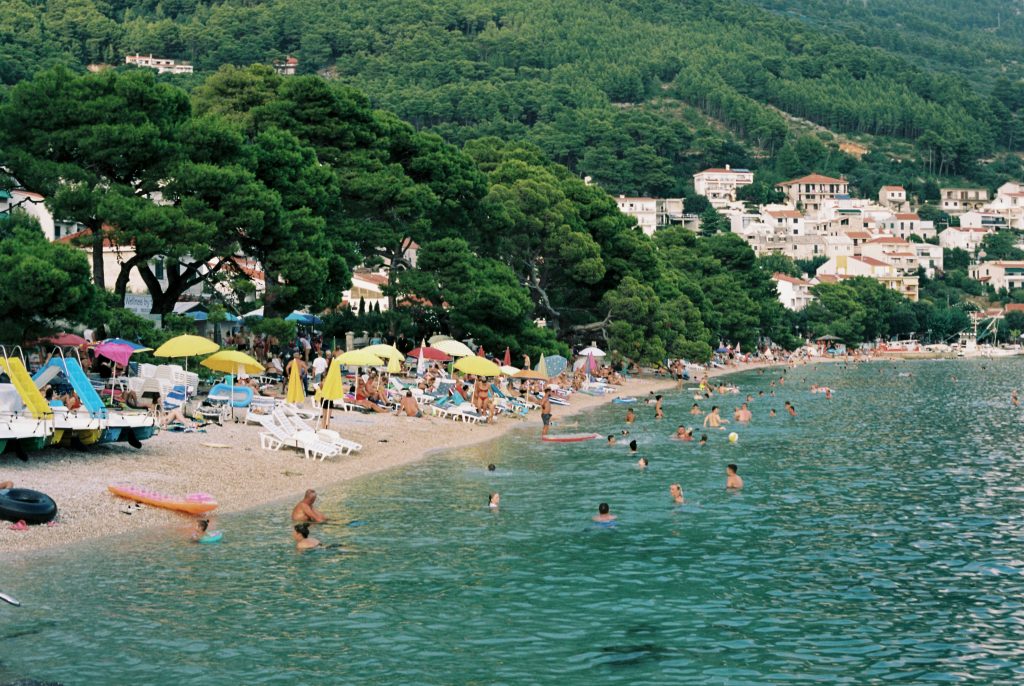May the 15th, 2024 – Mindset might seem like a popular buzzword and little else, but there’s a lot to it. Is it stupid to be positive about the future in Croatia?
One of the things I have noticed over the years is how differently foreigners and locals perceive Croatia, and while that is natural in every country in the world, the perceptions are much more markedly different here.
I think it is fair to say that the majority of visitors to Croatia are impressed by its beauty and relaxed lifestyle. The experience of a tourist visit is generally very positive and I have met several tourists who are confused at why so many young people are emigrating from such a spectacular EU country with so much potential. And I can completely understand the way they feel, for I was of the same opinion for many years, even after moving to Croatia. A democratic country in the EU, with a skilled and English-speaking workforce, a natural paradise with tourism infrastructure to cater to almost 20 million tourists largely to its Adriatic coast, there are so many reasons why Croatia – on paper at least – looks to be one of the best places to live in Europe.
Things only changed for me when I discovered the mighty State of Uhljebistan, as you can learn in A Tale of Two Croatias: Before and After the Uhljeb Discovery.
And yet, the optimistic impressions of most visitors is diametrically opposed to the viewpoint of the majority of locals. Those who have not already emigrated see the situation getting worse and worse, with less hope for a successful future for Croatia – unless, of course, they are part of the bloated bureaucratic system which provides a comfortable lifestyle, courtesy of a declining number of increasingly tightly-squeezed taxpayers.

There are many ways to illustrate the sheer numbers of parasites feeding off those who remain and work, but this is my favourite snapshot to illustrate the point. And while the numbers may not be 100% correct (I have not been able to confirm the exact amounts), the sentiment should get the message across.
New York, a city of 8.4 million inhabitants, has one mayor, 5 deputies and 51 city councillors.
Croatia, a country with half that population (actually less these days, now under 4 million) has 128 city mayors with 213 deputies, 20 regional governors with 50 deputies, 428 mayors of smaller towns and villages with 480 deputies, and a total of 8354 councillors.
And New York works, more or less, and Croatia doesn’t.
The obvious solution, of course, would be to slash the bureaucracy and bring huge savings to the State budget. The island of Hvar, for example, has a population of less than 11,000 people but it is governed by four local administrations and has 4 mayors and 5 tourist board directors. The problem, with change, however, is you would need to get those very people on board. And when you consider that every state job feeds a wider family of voters with no interest in upsetting the status quo, there is no reason to expect change any time soon.
Unless Croatia was to fail.
And there are several indicators which would indicate that failure is on course, apart from the bloated and inefficient bureaucracy.
Taking a more regional view, it’s clear that Croatia is struggling, with not a lot of hope in sight. Several people I have spoken to here have said that the only real solution to bring change and to start again is for the system to fail spectacularly. One way to accelerate that change would be to starve the parasites which are contributing hugely to the problem. A big proponent of this strategy is Matija Babic, owner of Index.hr, and someone who divides opinion in Croatia like few others. I consider Babic a good friend, which has alienated a number of people from TCN. I am okay with that, as if my main goal was to be liked by everybody, I probably would not have chosen to run a news portal with an opinion about Croatia.
The reason I mention Babic is due to an article he wrote a few years ago called Only Fools Can Be Optimistic in Croatia. The article was seemingly inspired by yet another conference on the branding of Croatia last week (note to future organisers from feedback from several participants – if you want to truly achieve the right goal of Croatia’s brand, you need to get out of the fishbowl of local experts and include the ocean of international knowledge and viewpoints). During the conference, President Kolinda, Grabar-Kitarovic, in an election year let’s not forget, called on the need for a campaign of optimism in Croatia.
A campaign for optimism based on nothing more than a political slogan as part of the reelection campaign, said one participant. And with the figures mentioned above all getting worse, optimism based on what exactly? Babic has moved his business and residence to Bulgaria, where the taxes and bureaucracy are much more favourable, and he has encouraged others to follow suit. Only by denying the parasites their tax revenue can change come, and anyone who is optimistic about Croatia and its future is a fool.
And while I broadly agree with Babic, I for one am optimistic about Croatia’s future. Which probably makes me a fool.
I think Croatia sadly may have to fail to start again, which would be a very painful process, but it would not need to fail necessarily. If it were to fail, there is a passionate, experienced and economically powerful group who would be ready to pick up the pieces and reset the Croatian economy along less socialist and corrupt directions – the Croatian diaspora. Currently sending more money back to Croatia each year than the country is receiving in foreign investment, the diaspora are overachievers economically and have a strong bond to Croatia. That the majority of them left with little more than the shirts on their backs makes their achievements all the more impressive.
The recent diaspora conference in Split was a fascinating place to be a foreign fly on the wall. The diaspora have a huge dilemma, at least in my opinion. By investing in Croatia, they are necessarily supporting the current system through taxation, but they want to support their homeland. There is reason to have optimism that something can come from this diaspora dynamic, but I think that there are two bigger reasons for optimism for Croatia’s future – technology and the changing nature of the world.
Transparency and technology are playing a greater role in the digital age, and I wrote some time ago that technology will, in my opinion, kill Uhljebistan in time (to which a friend replied that it was more likely that Uhljebistan would kill technology…). The Uber revolution is a case in point in Croatia’s rip-off taxi market. But technology and transparency will increasingly come to State institutions. It was hardly reported in international media, but things are starting, with the Mayor of Bjelovar launching an app where citizens can transparently track all financial transactions of the city in real time.
Imagine if that came to Zagreb…
But the bigger optimism comes from something totally out of Croatia’s control – the changing nature of the world. If someone had said not so long ago that the climate crisis debate was now being dictated by a 15-year-old Swedish schoolgirl who protested about the inaction to the crisis by striking from school each Friday in front of the Swedish parliament, we all would have laughed. One cover of Time Magazine and Nobel Peace Prize nomination later, and the Greta Thunberg School Strike for the Climate has taken on an international scale that is putting climate crisis at the top of the political agenda as never before.
If we look to the future and not backwards, are there seriously many countries in the world which are more ideally placed than Croatia to take advantage?
Of course, such a strategy would require welcoming a large number of foreigners to reside in Croatia.
Of course, for Croatia to embrace the digital nomad economy, that would require some action from the geniuses who currently run Croatia, so let’s not take any optimism for granted. For they are famous for snatching defeat from the jaws of victory.
Is it stupid and naive to feel positive about Croatia’s future? If the only parameters were the current situation in Croatia without technology and digitalisation, yes absolutely.
Is it stupid and naive to feel positive about Croatia’s future with digitalisation, technology and the diaspora? This foolish Englishman thinks not.











